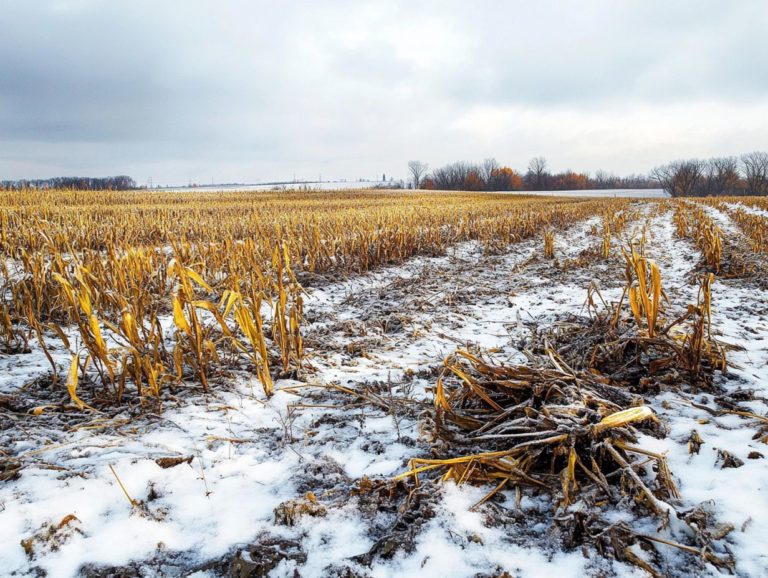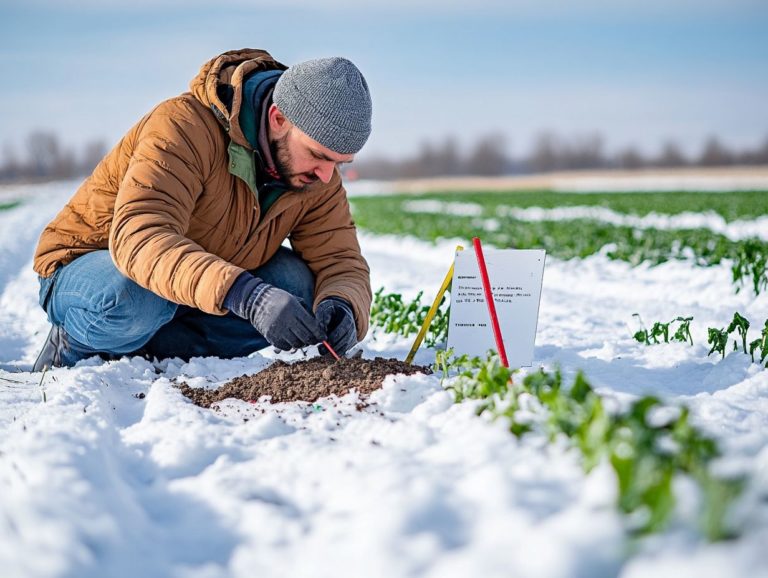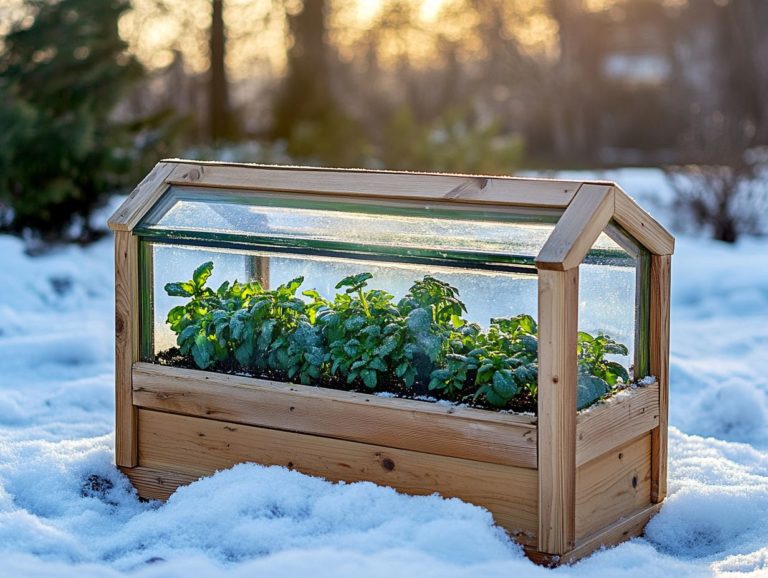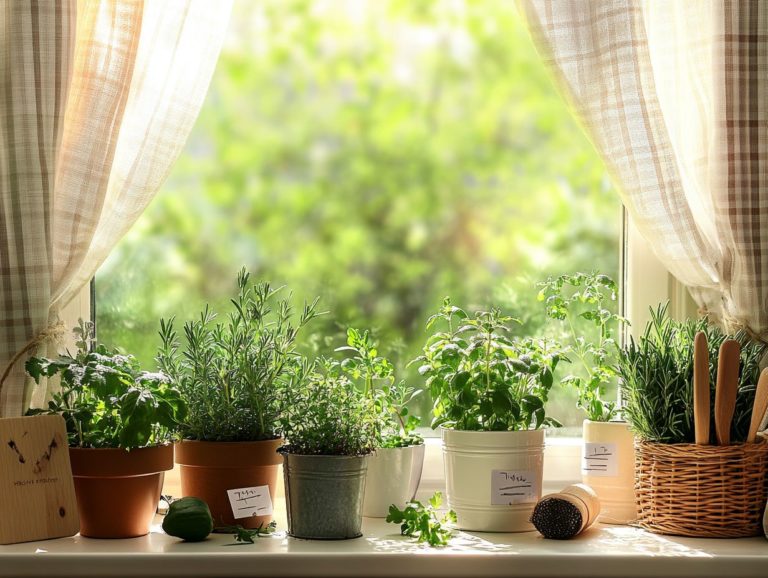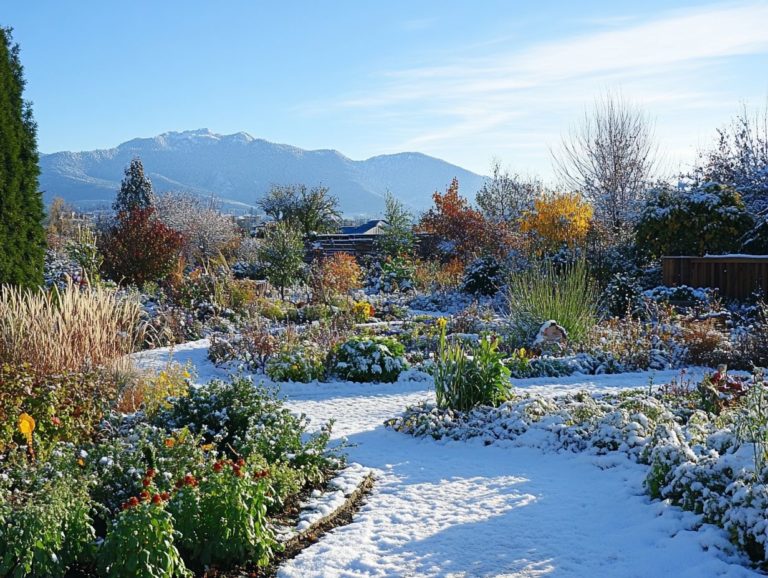How to Use Compost in Cold-Weather Gardening
Gardening during the colder months may present its challenges. However, integrating compost into your routine can yield remarkable advantages that enhance soil quality and support plant vitality.
This guide provides essential strategies for effectively utilizing compost throughout the winter, covering everything from preparing your garden beds to selecting the finest compost options.
You’ll find valuable tips for maintaining your compost and identifying common pitfalls to avoid. Get ready to transform your winter gardening journey with compost!
Contents
- Key Takeaways:
- The Benefits of Compost in Cold-Weather Gardening
- Preparing Your Garden for Cold Weather
- How to Use Compost in Cold-Weather Gardening
- Best Types of Compost for Cold-Weather Gardening
- Tips for Maintaining Compost in Cold Weather
- Avoid These Common Composting Mistakes in Cold Weather
- Frequently Asked Questions
- What is compost and why is it important in cold-weather gardening?
- How do I incorporate compost into my cold-weather garden?
- Is it safe to use compost in cold weather if it hasn’t fully decomposed?
- Can I use homemade compost in cold-weather gardening?
- How often should I apply compost in my cold-weather garden?
- Can I use compost as mulch in my cold-weather garden?
Key Takeaways:
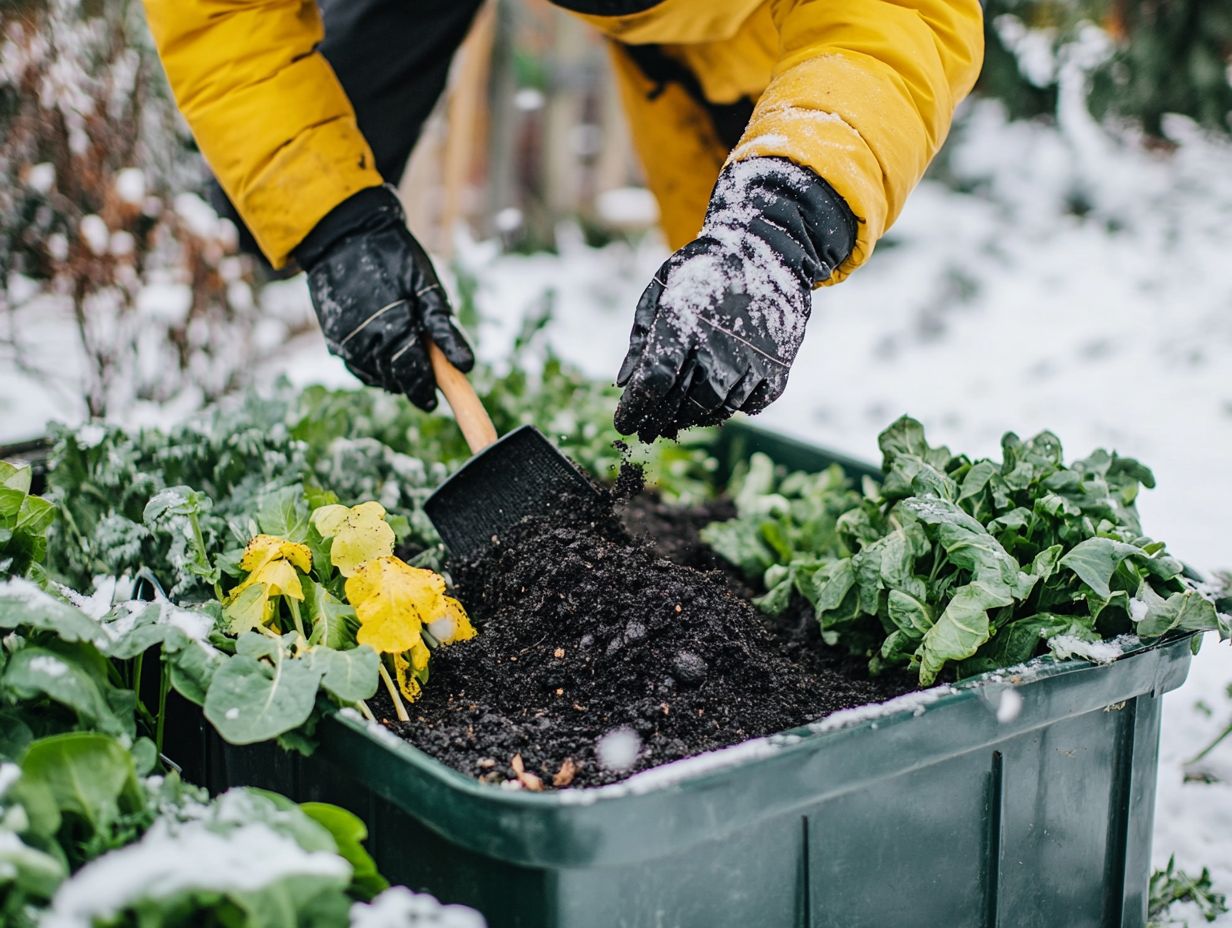
- Incorporate compost in cold-weather gardening to improve soil quality and plant health, resulting in stronger and more resilient plants.
- Clear and mulch garden beds before winter. Use different methods to apply compost to maximize its benefits in cold weather.
- Choose the right compost for your plants and protect it from freezing and thawing to succeed in cold weather gardening.
The Benefits of Compost in Cold-Weather Gardening
Composting offers a wealth of advantages for cold-weather gardening, especially in regions like Ontario, Canada, where winter temperatures can be harsh. Utilizing natural fertilizers for cold-climate gardens can enhance your gardening success in these conditions.
Transforming your kitchen scraps and organic waste into compost full of nutrients significantly enhances your soil quality. This helps foster robust plant growth and improve moisture retention in your garden.
This process also readies your soil for the upcoming spring gardening season while supporting your plants’ health and vitality throughout the frigid months.
Understanding the intricacies of composting in cold climates is crucial for cultivating successful gardening practices, including the use of the top 10 soil amendments for cold-weather gardens.
Improving Soil Quality and Plant Health
Improving soil quality and plant health starts with understanding the ideal compost ingredients and the specific layers to incorporate into your compost pile.
By skillfully balancing browns (like dried leaves) that provide carbon with greens (like kitchen scraps) that offer nitrogen, you can create a nutrient-rich environment for beneficial microorganisms. This careful ratio typically three parts browns to one part greens is vital to the composting process.
As your compost heats up during decomposition, it transforms into rich organic matter that enhances soil structure and effectively retains moisture and nutrients.
The compost you create acts like a protective shield for your plants, helping them develop stronger root systems and resilience during colder months, ensuring they flourish even in challenging conditions.
Preparing Your Garden for Cold Weather
Preparing your garden for cold weather requires a strategic approach. Using compost as winter insulation is essential to keeping your compost materials viable and beneficial, even in low temperatures.
In areas like Alberta and Saskatchewan, where winters can be particularly harsh, consider using an insulated compost bin or a galvanized trash can. These options help maintain the decomposition process, even when you’re adding frozen scraps.
By properly preparing your garden, you shield your plants from the elements and enhance the benefits of your composting system.
Clearing and Mulching Garden Beds
Clearing and mulching your garden beds is essential for winter gardening. This practice protects your plants from harsh conditions and helps retain soil moisture.
By removing debris such as dead leaves, weeds, and spent plants you create an environment that minimizes disease and pest issues, setting the stage for healthier growth in spring. After clearing, applying a generous layer of mulch is vital. This creates insulation against freezing temperatures. Using compost as mulch enriches the soil while suppressing weeds and regulating moisture levels.
If you’re considering alternatives, straw or fallen leaf litter can serve as effective, natural mulching options that provide similar benefits and promote biodiversity in your garden. With these strategies in place, the winter months can transform from dormancy into rejuvenation for your garden.
How to Use Compost in Cold-Weather Gardening
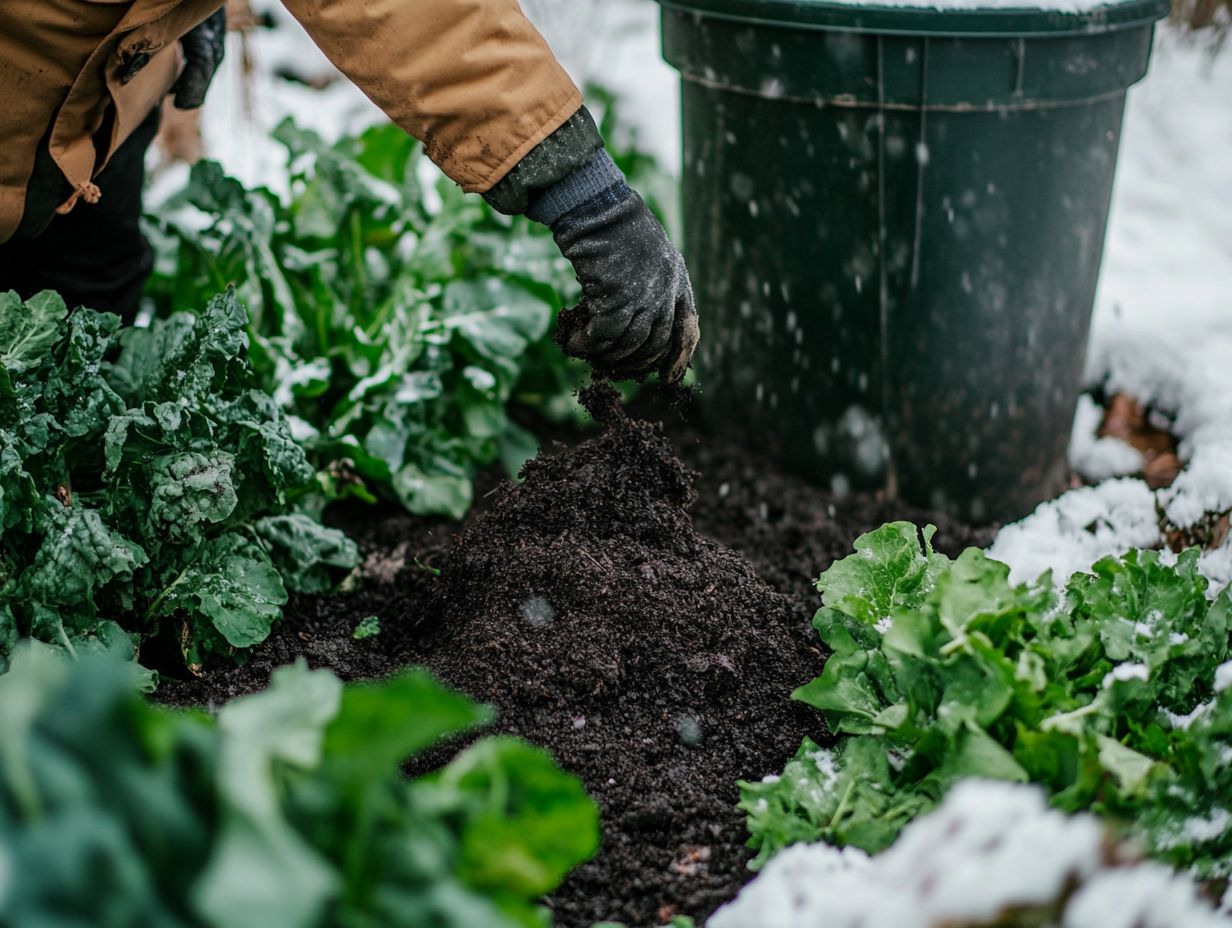
Using compost in cold-weather gardening demands a solid grasp of specific application methods. Understanding the benefits of composting in cold weather optimizes these advantages while effectively addressing the distinct challenges posed by lower temperatures. They also improve compost efficiency.
Methods for Applying Compost
Compost application methods can vary. One of the most effective techniques in cold-weather gardening is side-dressing, along with winter composting tips for cold climates.
This approach involves placing compost alongside your plants. This ensures that nutrients are readily available as they grow.
Side-dressing allows for targeted nutrient delivery, which is especially crucial in colder regions. Here, soil temperatures can slow down the activity of microorganisms, impacting composting efficiency.
Another method is top-dressing, which entails spreading compost over the soil surface. This method enhances nutrient uptake, improves moisture retention, and enriches soil structure.
If you’re looking to incorporate compost directly into the soil, consider the right compost-to-soil ratio to avoid nutrient imbalance.
Each method has its strengths. Side-dressing may provide immediate benefits, while incorporation promotes long-term soil health. Both are integral to successful gardening in challenging climates.
Best Types of Compost for Cold-Weather Gardening
Identifying the ideal types of compost for cold-weather gardening is essential. This ensures your plants receive the nutrients they need to flourish, even amidst the challenges of cooler climates. Understanding the benefits of using compost in cold climates can further enhance your gardening success.
While maintaining an effective composting system, it s important to consider factors like nutrient quality, composting methods, and strategies for keeping animals at bay.
Different composting methods bring unique advantages and challenges. Traditional composting relies heavily on the activity of microorganisms, which can slow down significantly in frigid conditions.
In contrast, Bokashi composting uses a special mixture to ferment food waste instead of traditional composting. It can thrive in cooler environments, allowing for quicker breakdown of kitchen scraps and helping to deter local wildlife.
Vermicomposting, which involves using earthworms, is another solid choice. You can keep it indoors during freezing months, effectively preventing any animal intrusions.
By selecting the right composting approach, you can enhance your nutrient content while effectively tackling animal interference.
Tips for Maintaining Compost in Cold Weather
Maintaining compost in cold weather can be tricky, but it’s also an exciting opportunity to improve your gardening skills! By following the essential guide to gardening in cold weather, you can ensure your compost remains effective and nutrient-rich throughout the winter months.
Protecting Compost from Freezing and Thawing
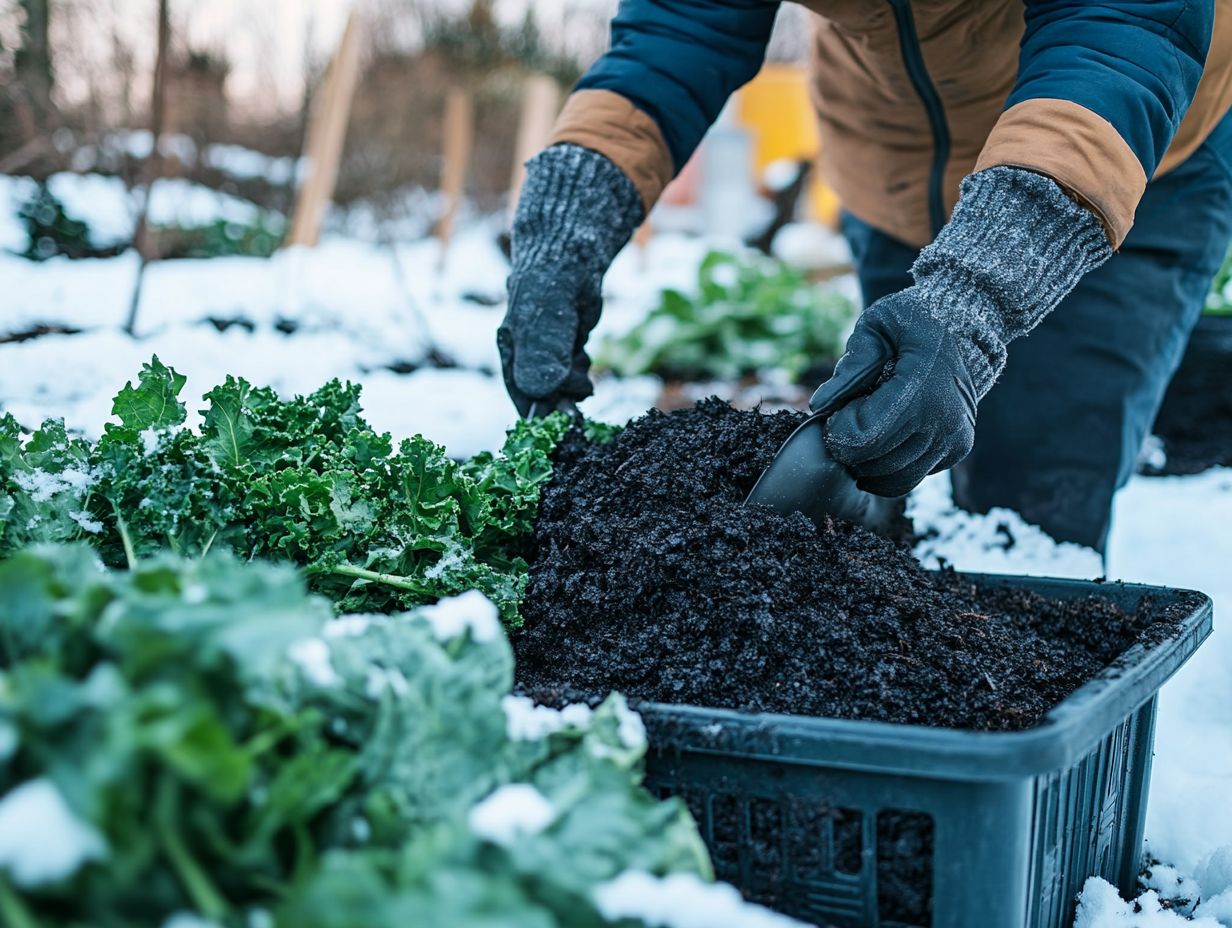
Protecting your compost from the harsh cycles of freezing and thawing is crucial for maintaining its quality. This ensures successful decomposition during the cold months.
A great way to protect your compost is by using insulated bins or a galvanized trash can. These help keep the temperatures within the compost mixture elevated, fostering microbial activity even in frigid conditions.
Engaging with the composting community is essential. Exchanging experiences and tips can offer invaluable insights into navigating cold climate challenges. Community members often share innovative practices that have proven successful for them, enhancing your composting efforts despite the cold.
Are you ready to transform your cold-weather gardening? Let’s dive into how to use a greenhouse in winter gardening and explore how compost can make a real difference!
Start your composting journey today and watch your garden thrive, no matter the weather!
Avoid These Common Composting Mistakes in Cold Weather
To get the most out of your compost in cold weather, avoid common mistakes.
With the right steps, you can keep your compost effective even when temperatures drop.
Proper Storage and Application Techniques
Proper storage and application are key for effective composting in winter.
Protect your compost from freezing and thawing, which can hurt its quality. Insulate your compost pile with straw bales or a sturdy compost bin.
Layer kitchen scraps with other compost materials to improve air circulation and speed up decay.
Maintain balanced moisture and mix greens and browns for a thriving compost ecosystem.
Frequently Asked Questions
What is compost and why is it important in cold-weather gardening?
Compost is decomposed organic matter like food scraps and yard waste. It s vital for winter gardening because it nourishes plants and retains soil moisture.
How do I incorporate compost into my cold-weather garden?
Spread a layer of compost on the soil and mix it in with a garden fork.
Make compost tea by steeping compost in water to use as liquid fertilizer.
Is it safe to use compost in cold weather if it hasn’t fully decomposed?
Yes, using partially decomposed compost is safe. It can actually speed up decomposition and provide nutrients to plants.
Can I use homemade compost in cold-weather gardening?
Absolutely! Homemade compost is a great option. It s free and packed with nutrients for your plants.
How often should I apply compost in my cold-weather garden?
Apply compost every 2-3 weeks to keep nutrient levels up and plants healthy.
Can I use compost as mulch in my cold-weather garden?
Yes, compost makes excellent mulch. It insulates soil and protects plants from harsh winter conditions while adding nutrients.

